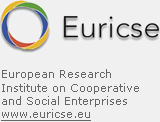 Please follow this link to download the full Pdf.
Please follow this link to download the full Pdf.
Introduction
In the years that preceded the social networking revolution, indicators of social participation have declined in many OECD countries (Bartolini et al., 2013; Costa & Kahn, 2003; Putnam, 2002; Sarracino, 2010). However, more recently, the success of social networking sites (SNSs) has resulted in a steep rise in online social participation (Antoci et al. 2013a; 2013b; Brenner and Smith, 2013).
According to the Pew Research Center (PRC) Internet & American Life Project Survey, as of May 2013, 72% of online adults were active on SNSs (67% use Facebook, 16% use Twitter, 15% use Pinterest and 13% use Instagram). Approximately 80% of online young adults (aged 18–29) and 77% of middle-aged adults (30–49) use SNSs (Duggan and Brenner, 2013; Brenner and Smith, 2013). Despite the immensity of these transformations, the impact of online interactions on social capital has so far never been analysed in the economic literature. It is not clear whether in the “social networking era” Internet usage may accelerate the decline in social participation as documented by empirical studies, or if it offers a way to support social relationships against the threats posed by the disruption of ties and the weakening of community life.
A few pioneering economic studies analyse the impact of broadband and, more in general, of Internet use. Pénard and Poussing (2010) find ambiguous results on the relationship between online investments in social capital and the development of face-to-face interactions among Luxembourg Internet users. In a following study, the authors find that non-users are less satisfied with their life than Internet users (Pénard and Poussing 2013). Bauernschuster et al. (2011) show that having broadband Internet at home does not harm social capital in Germany. On the other hand it favours cultural consumption. Campante et al. (2013) show that the diffusion of the broadband may foster specific types of political participation in Italian municipalities. Falck et al. (2012) find that broadband decreases voter turnout in German municipalities. These works are innovative and informative, but they are not able to analyse the role of online networking, which has rapidly become one of the most relevant features of Internet use, or to assess the impact on social trust, which is the most economically relevant aspect of social capital.
Empirical studies in the fields of applied psychology and communication science on the other hand have more specifically analysed how online networking – with a special attention to specific networks such as Facebook and MySpace – influences social interactions across Internet users. However they suffer from the use of survey data collected from strongly biased and non-representative samples, in most cases composed of small communities of undergraduate students.
We innovate this multidisciplinary literature by carrying out the first study on the effect of online interactions through social networking sites (SNSs), chats, newsgroups, and forums, on two economically relevant dimensions of social capital – i.e. generalized trust towards unknown others (hereafter “social trust”) and social networks developed through face-to-face interactions among friends and acquaintances – in a large and representative sample of the Italian population. Our main research objective is to investigate whether online networking can support or, by contrast, destroy these two dimensions of social capital.
To reach this goal we use a pooled cross-section of data including the last two waves (2010 and 2011) of the Multipurpose Survey on Households (MHS) provided by the Italian National Institute of Statistics (Istat). This survey contains detailed information on Internet use – with special regard to participation in online networks such as Facebook and Twitter – and the different dimensions of social capital.
Due to the cross-sectional nature of our data we cannot exclude the possibility that online participation may be endogenous to individual social capital. More specifically, there may be three sources of endogeneity: first, it is difficult to distinguish the effect of online networking from that of other phenomena that potentially influence social capital. Second, individual effects, such as personal exogenous shocks, may be correlated with both the propensity for online networking and individual social capital, thus creating a common bias. Third, it is reasonable to suspect the existence of reverse causality: people who meet their friends more frequently, for example, may be encouraged to use online networking to stay in closer touch with them. To deal with these problems we first include in the social capital equations a wide set of individual, household and local level control variables. In addition to usual socio-demographic controls, we place a special focus on the ways in which people connect to the Internet. Then, we instrument participation in SNSs and in chats, newsgroups, and forums, by means of indicators of the local coverage of DSL and optical fibre allowing a fast Internet connection a few years before the collection of MHS data. We illustrate in Section 4.1 how Italy’s orography caused a significant variation in access to fast Internet across regions and how such variation is exogenous to social capital and was not driven by individuals’ propensity for online networking.
Ordered probit and IV estimates show that participation in SNSs and in chats, newsgroups, and forums is significantly and positively associated with the frequency of meetings with friends and acquaintances. However, we find a significant and negative association between online participation and social trust.
The paper proceeds reviewing the literature on social capital and Internet-mediated interaction. Section 4 describes our data and method. Section 4.1. specifically addresses endogeneity issues. The empirical results are presented in Section 5. Section 6 is devoted to the interpretation of results. The conclusion summarizes some lessons on the effects of online networking.








